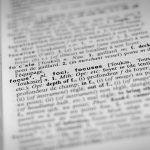In the world of language learning, understanding how language works is essential. One important field in this area is called “corpus linguistics.” Corpus linguistics is all about studying large collections of language data using computers. It helps us understand how words and grammar are used in real-life situations.
Exploring Corpus Linguistics
Corpus linguistics became really important in the late 20th century. Groups like the Survey of English Unit at University College London and the Bank of English teams at the University of Birmingham started creating big databases of language. These databases, called “corpora,” showed us how language is really used, which sometimes was different from what we thought.
Corpora in Language Teaching
Corpora aren’t just for studying language; they’re also useful for teaching it. For example, many dictionaries and grammar books now use data from corpora to give more accurate information about words and grammar rules. This helps learners understand and use language better.
Using Corpus Data in Teaching Materials
When making teaching materials, like textbooks, some people use data from corpora to make them more realistic. However, there’s a debate about how authentic these materials should be. Some argue that they should be as real as possible, while others think they should be simpler for learners.
Benefits of Corpus-Informed Teaching
Those who support using corpus data in teaching say it’s important for learners to see real language in action. They believe this helps learners communicate better. Others think that simpler, more controlled language is better for learners, especially beginners.
Incorporating Learner Language in Teaching
Nowadays, teaching materials also use data from learners themselves. This helps teachers understand common mistakes and tailor their lessons to their students’ needs.
The Role of Technology
Technology has made corpus linguistics more accessible. Now, many corpora are available online, and tools like concordance lines make it easier to search for language patterns.
Varieties of English
English comes in many different forms, like American, British, or Australian English. This diversity raises questions about which form to teach. Some argue that learners should focus on a more international version of English, called English as a Lingua Franca (ELF).
The Future of Corpus Linguistics
As more corpora are created, the focus has shifted from whether to use them to how to use them effectively in language teaching.
Conclusion
Corpus linguistics is a valuable tool for understanding and teaching language. By studying real language data, learners can become more proficient communicators. While debates continue about the best approach, the increasing availability of corpora opens up new possibilities for language learning.








